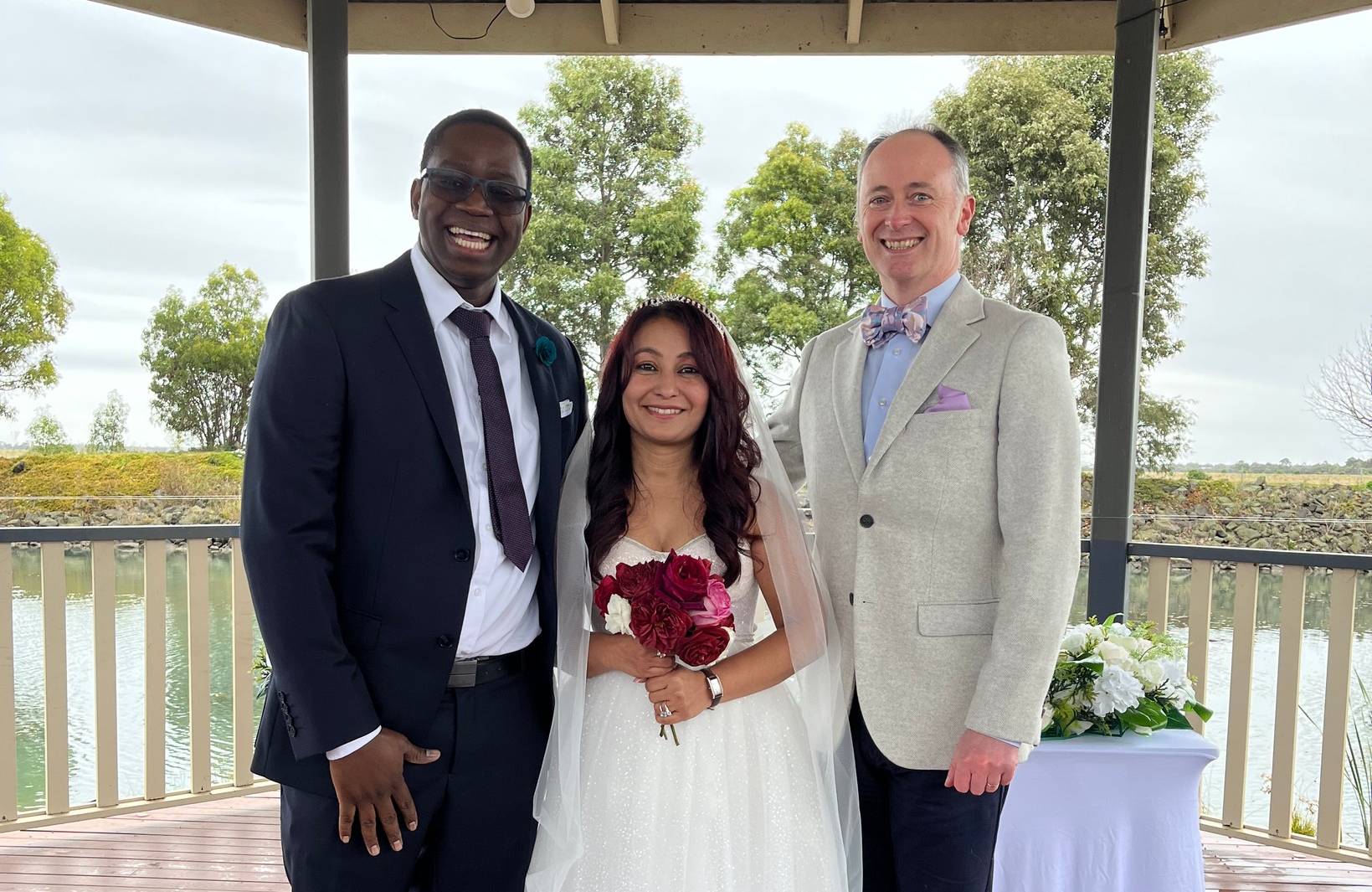Marriage Celebrant or Religious Officiant? Choose the Best for Your Wedding
14 September 2024
Marriage celebrant or religious officiant? Discover the pros and cons of each to make the best choice for your wedding ceremony. Trust Dwayne Nichols today!
Choosing the right person to officiate your wedding is a crucial step in planning your special day. The decision between a marriage celebrant and a religious officiant can shape the tone and style of your ceremony, reflecting your personal beliefs and values. Whether you envision a traditional religious service or a more modern, personalised wedding ceremony, understanding the roles of each option will help you make an informed choice that aligns with your vision.
Understanding the Roles: Marriage Celebrant vs. Religious Officiant
A marriage celebrant is a professional legally authorised to perform weddings and is often chosen for secular or non-religious ceremonies. Celebrants offer flexibility in crafting a ceremony that reflects your unique relationship, allowing for personalisation in vows, readings, and rituals. They are skilled in blending various cultural traditions and can create a ceremony that resonates with your story.
On the other hand, a religious officiant is typically a clergy member, such as a priest, minister, rabbi, or imam, who conducts the ceremony according to the practices of their faith. Religious officiants are often chosen by couples who wish to honour their traditions and include specific religious rites in their wedding. The ceremony led by a religious officiant usually follows a set structure defined by the faith, which may offer comfort and meaning to those deeply connected to their religion.
Pros and Cons of Each Choice
When deciding between a marriage celebrant and a religious officiant, couples should consider the advantages and potential drawbacks of each option. Let’s explore these to help you make an informed decision for your special day.
Marriage Celebrant
One of the primary advantages of choosing a marriage celebrant is the flexibility they offer. A celebrant can tailor the ceremony to suit your preferences, whether you want a casual, intimate gathering or a more formal event. You can include or exclude any elements, creating a ceremony that reflects your personality and relationship.
However, the personalised nature of a celebrant-led ceremony might not appeal to those who prefer the structure and tradition of a religious service. Additionally, if you or your family hold strong religious beliefs, a non-religious ceremony may not meet your expectations or those of your loved ones.
Religious Officiant
Choosing a religious officiant often brings a sense of tradition and spiritual significance to your wedding. For couples with strong religious ties, having a ceremony conducted by a clergy member can provide a deep connection to their faith and a sense of continuity with family traditions. Religious officiants are also experienced in guiding couples through the spiritual aspects of marriage, offering pre-marital counselling and support.
However, the structured nature of religious ceremonies may limit personalisation. The ceremony will likely follow a specific order with prescribed readings and rituals, leaving less room for customisation. Additionally, some religious officiants may require that the couple adhere to certain practices or beliefs, which could be a consideration for those who are less observant or come from different faith backgrounds.
For couples in Melbourne looking for an experienced and trusted celebrant, consider reaching out to Marriage Celebrant Melbourne, Dwayne Nichols. With a reputation for creating heartfelt, unique ceremonies, I can help bring your wedding vision to life.

